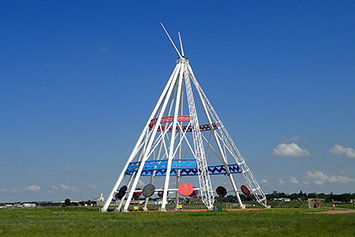
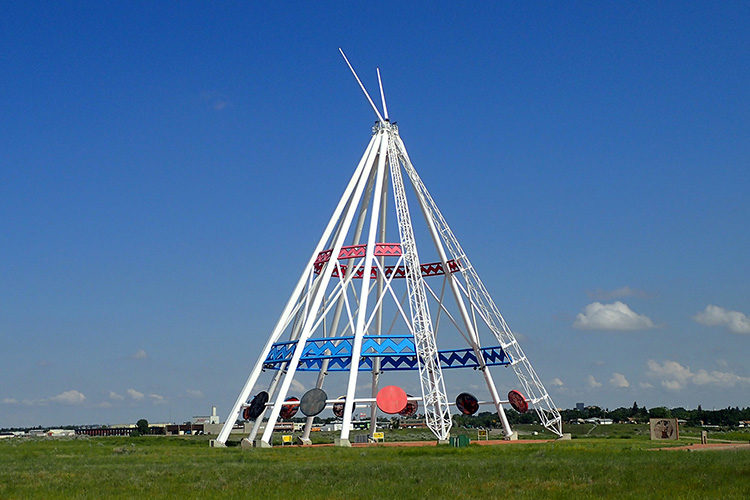
As we drive through Medicine Hat, the World’s Largest Tepee tempts us to stop and see what this small prairie city in southeastern Alberta, with the peculiar name, has to offer. With main masts as high as a 20-story building, the Saamis Tepee introduces the city’s history and name — a loose translation of the Blackfoot word Saamis, a medicine man’s headdress. Linger a bit longer and we find a community with a rich history, a strong artistic tradition, and unusual natural attractions.
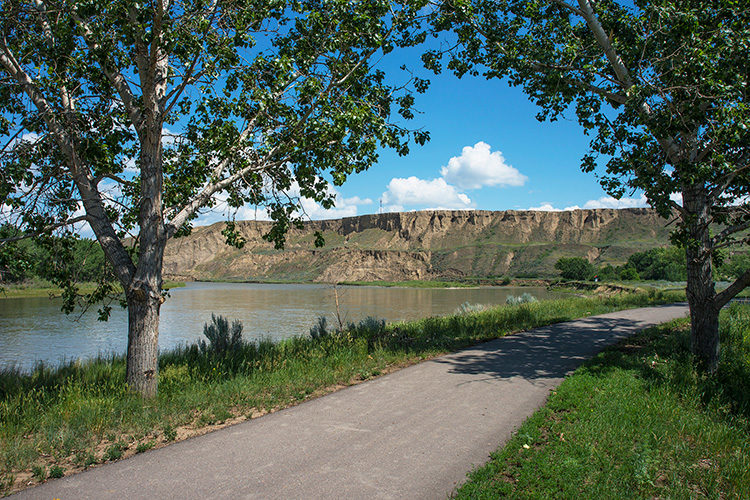
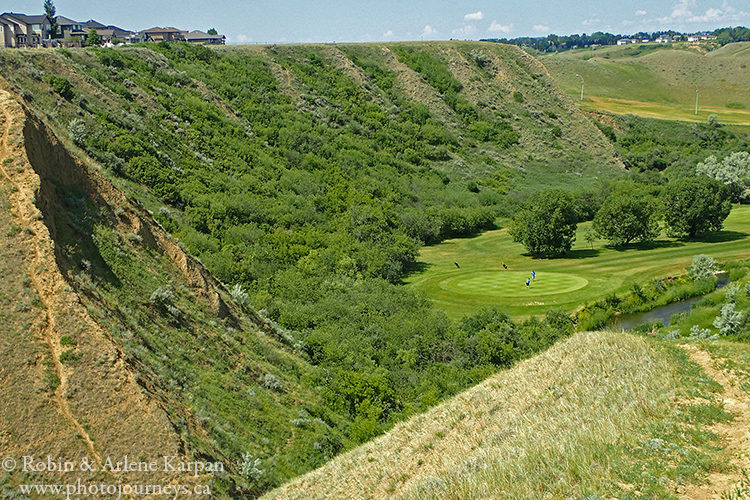
Industry and arts
Originally founded as a divisional headquarters for the Canadian Pacific Railway, the discovery of huge natural gas reserves put Medicine Hat on the map. During the early 20th century, this cheap new energy source made the community an industrial centre.
The most enduring and successful manufacturing enterprise was clay products, since gas provided a reliable heat source for the kilns, and clay deposits were close at hand along the South Saskatchewan River.
The Medalta Clay District is the most surprising part of the city. Now a national historic site, old factory buildings are part of a heritage museum where tours show how massive and far-reaching this operation was. Bricks and ceramics of every imaginable kind from utilitarian pots to decorative knick-knacks were shipped across the country. Got an old ceramic crock in the basement? Chances are that it was made here. Ceramics are still important, but these days it’s for Medalta’s artist-in-residence program, where artists from around the world come to study and work, many of whom decide to settle in Medicine Hat.
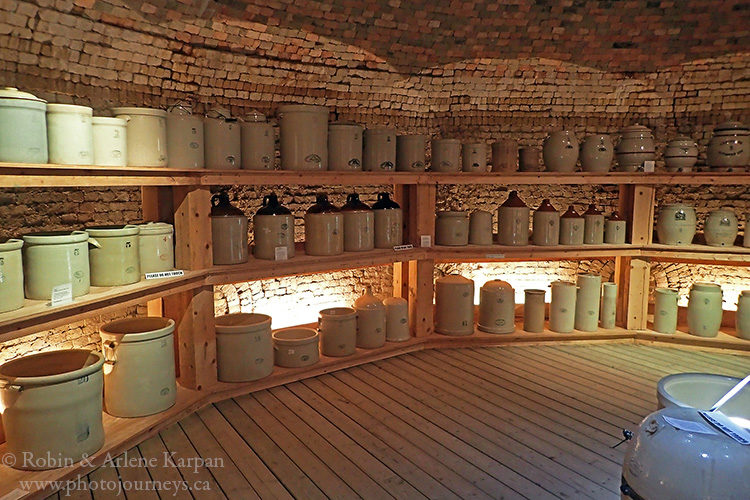
The arts have always played a big role, with a long-running annual jazz festival, the oldest movie theatre still operating in Canada and the James Marshall Murals, made by the Medicine Hat native, who became a nationally famous brick relief artist. The Esplanade Arts and Heritage Centre has an excellent gallery on local history, as well as temporary displays. The day we visited, there was an exhibition on the Group of Seven painters’ special relationship with Alberta.
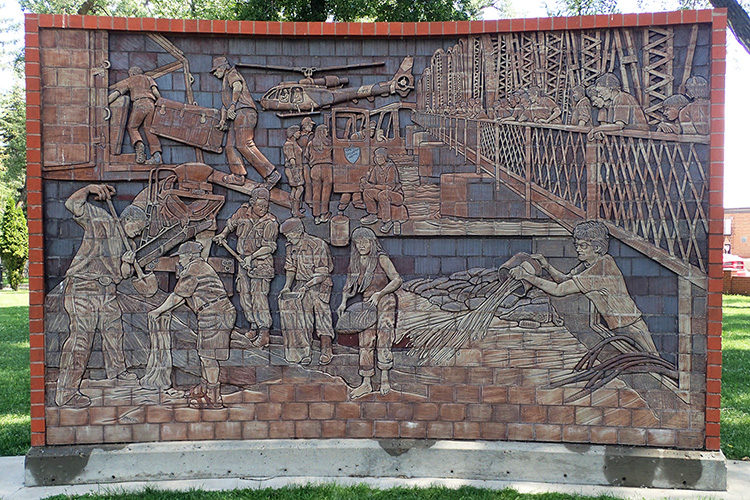
Have a sip or two
For something a bit more indulgent, sign up for the unique coffee tour. Coffee culture is so strong that locally owned shops dominate rather than big chains. Six in close proximity all thrive because each does something different. The guided walking tour visits three cafes, with coffee samplings accompanied by fresh-baked pastries, plus a healthy dose of Medicine Hat history.
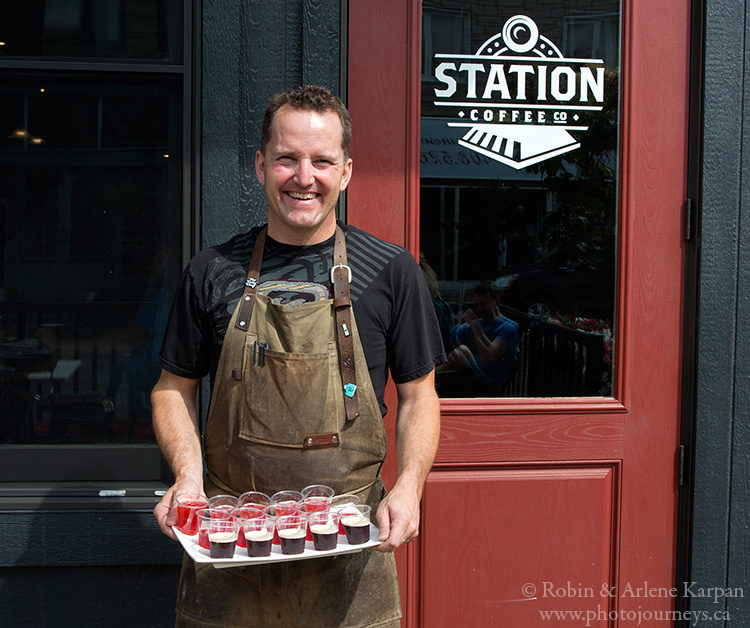
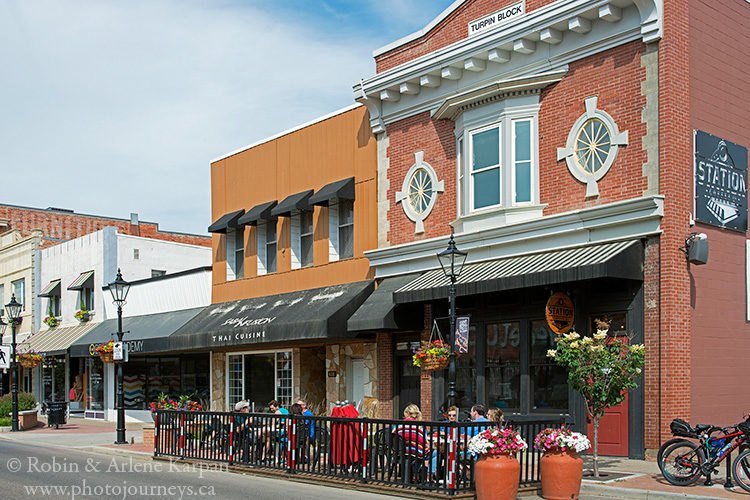
If you prefer tastings on the cooler side, try one of the craft breweries. Using and serving local ingredients is all the rage these days, but at Medicine Hat Brewing, they go a step or two beyond. Locally-grown barley is used to make the beer. The dried, left-over barley is sent to a local beef producer who feeds it to his cattle. Then the brewery buys beef from the farmer to serve in the restaurant.
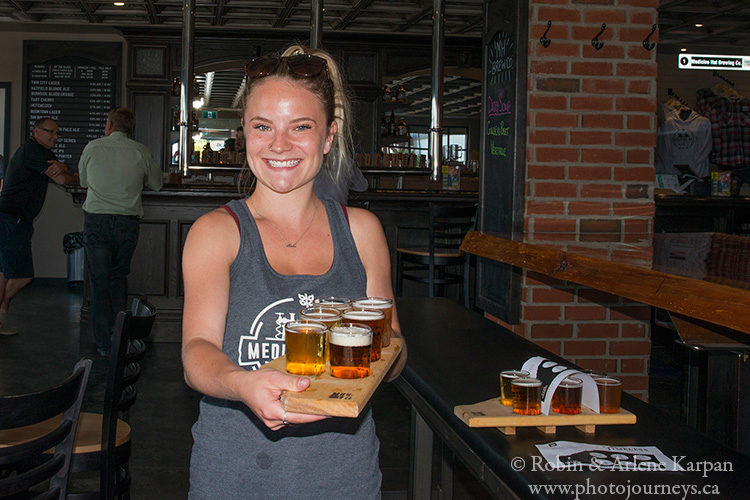
Scenery galore
Much of Medicine Hat’s appeal has to do with its setting, stretched along the banks of the South Saskatchewan River, with a maze of side coulees. Parks abound, and a great way to explore the city’s 115 kilometres of trails is by bicycle. Don’t have your bike with you? No worries. The visitor centre near the Saamis Tepee lends out bikes to visitors — for free, helmet included.
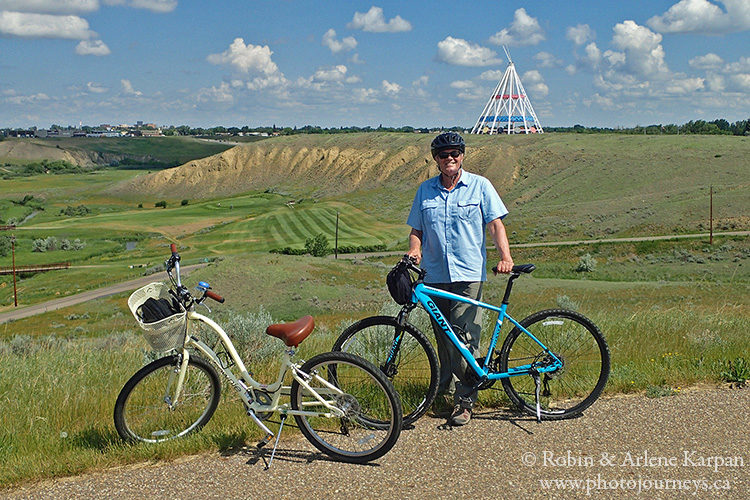
Several intriguing landscapes are a short drive away, the best known being Cypress Hills Interprovincial Park just to the southeast, sprawling across the Alberta/Saskatchewan border. Here we quickly leave the wide open farm and ranchland and enter heavily wooded highlands, home to the highest point in Canada between the Rocky Mountains and Labrador.
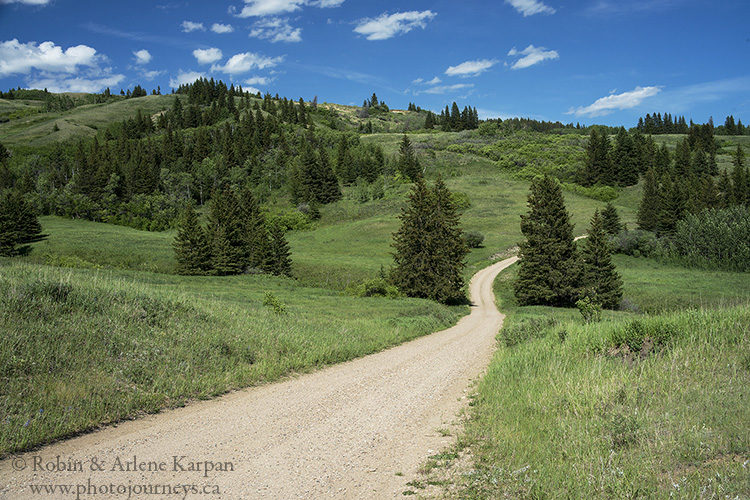
Our favourite day trip from Medicine Hat, especially for photography, is to Red Rock Coulee, a short drive to the southwest. This other-worldly landscape is covered in massive concretions, thought to be some of the largest in the world. The rounded formations resemble oversized curling rocks, or hamburger buns. For photographers, the best time to visit is evening before sunset, when the low light makes the reddish rocks glow. For a more comprehensive look at this magical, see our earlier posting specifically on Red Rock Coulee.
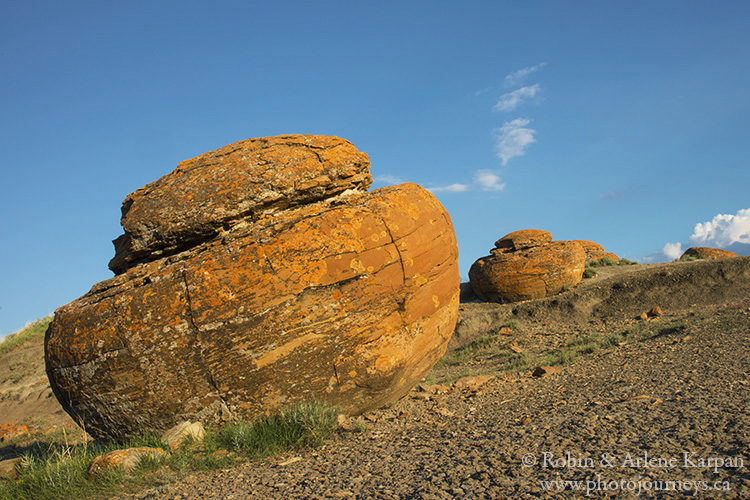
Rudyard Kipling to the rescue
Medicine Hat’s distinctive name was almost lost during the city’s early boom. City council wanted a more industrial-sounding name to attract new businesses, so they proposed changing it to Gasburg. When British author Rudyard Kipling caught wind of the proposal, he was horrified. Having visited Medicine Hat in 1907, Kipling was impressed with the place and wrote a scathing letter that was published on the front page of the local newspaper. “This part of the country seems to have all hell for a basement, and the only trap door appears to be in Medicine Hat,” he wrote. “And you don’t even think of changing the name of your town. It’s all your own and the only hat of its kind on earth.” The argument worked and the name was saved.
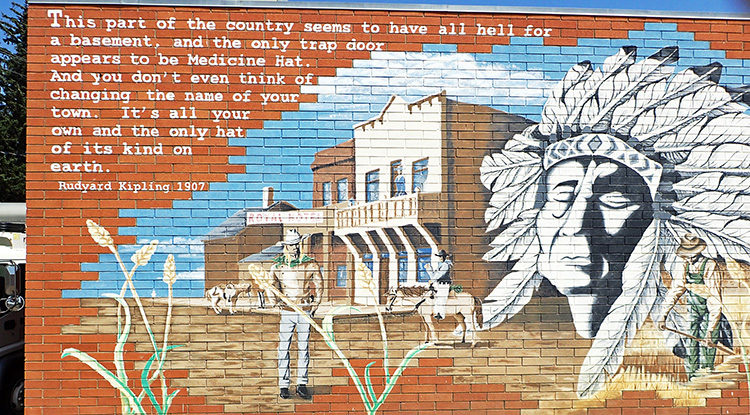
For more details see www.tourismmedicinehat.com. For ideas on other great places to visit in southern Alberta, see www.canadianbadlands.com. If you’re looking for a hotel in Medicine Hat, or other activities such as golf, nature itineraries, breweries, or festivals and events, check out the suggestions at Stay in Medicine Hat.
Feel free to PIN this article
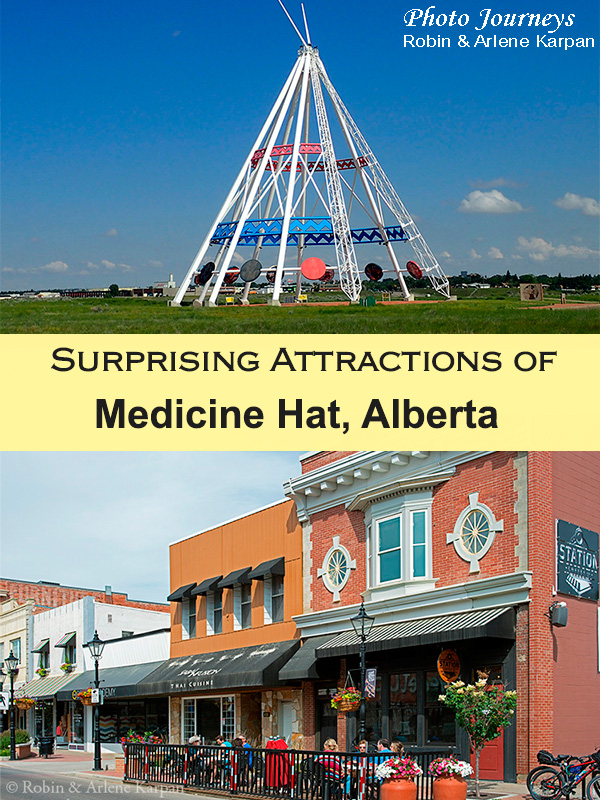


I had lived in medicine hat about 19 years ago and I believe the tourism sector or it may have been yourselves complied an amazing 8.5×14 glossy paper book.. do you happen to know I am can get a copy of this book.. it was like a table book (soft cover)
We are not aware of the book that you are referring to. The best bet might be to contact Tourism Medicine Hat to see if they know about it. Good luck in finding it.